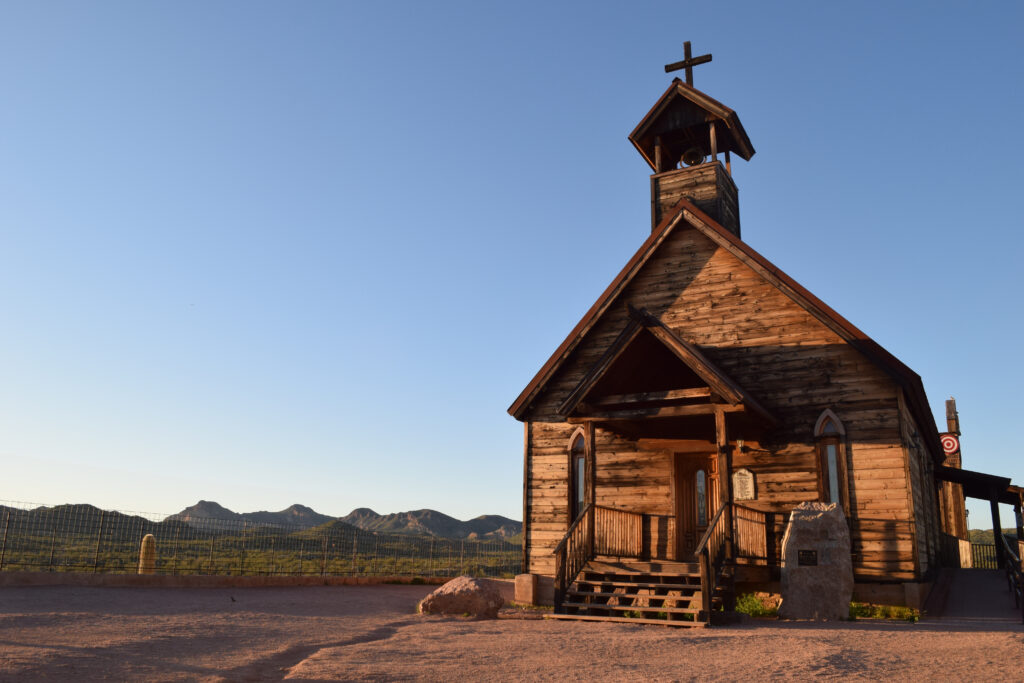The tradition of Cowboy Church represents a unique blend of Christian worship and Western culture, providing a spiritual home for those who love the cowboy lifestyle. Many Cowboy Churches meet in non-traditional settings like barns, arenas, or even sale barns, reflecting their commitment to breaking down barriers to worship. These churches embrace a “come as you are” philosophy, welcoming all individuals to hear the Gospel of Jesus Christ.
Rooted deeply in the cowboy and rodeo communities, Cowboy Church combines faith with a way of life characterized by hard work, independence, and a strong sense of community. The services often feature country gospel music and may include rodeo events, creating an environment that’s both spiritually nourishing and culturally relevant. This approach not only preserves Western traditions but also promotes a sense of belonging and acceptance.
With a focus on embodying the teachings of Jesus Christ, Cowboy Churches strive to be inclusive and accessible. They cater predominantly to rural areas, making it easier for people to attend without feeling out of place. This unique fusion of faith and Western heritage offers a welcoming and relatable form of worship that continues to grow in popularity.

Origins and History of Cowboy Churches
Cowboy churches emerged as a unique blend of Christian faith and Western lifestyle, offering a welcoming place for those connected to the cowboy and rodeo communities. Key factors include their rise in America, the influence of Western culture, and their growth over the years.
Rise of Cowboy Churches in America
The formation of cowboy churches is often attributed to the need for a welcoming space for individuals involved in the cowboy and rodeo lifestyle. The first recognized cowboy church traces back to Glenn Smith in Virginia. Early gatherings were practical and informal, held in barns, rodeo arenas, and other rural venues. This practical approach ensured that the community felt comfortable and that their way of life was respected. These churches provided spiritual guidance while understanding the unique challenges faced by this community.
Influence of Western Culture on Worship
Western culture deeply influences the worship style and ambiance of cowboy churches. Services often incorporate elements like country gospel music and informal attire, reflecting the Western ethos. Farm and rodeo elements, such as meeting in barns and hosting horse-riding events, also enrich their gatherings. This cultural integration helps bridge the gap between traditional Christian services and the cowboy lifestyle, making faith more accessible and relevant to attendees who might feel out of place in a conventional church setting.
Expansion and Growth Over the Years
Cowboy churches have seen significant expansion and growth over the past decades. What began as local gatherings transformed into a widespread movement, with organizations such as the American Fellowship of Cowboy Churches (AFCC) facilitating this growth. Modern cowboy churches may include large congregations and multiple services, showcasing their reach and appeal. The inclusion of community activities, rodeo events, and social gatherings further entrenches these churches in the fabric of rural and Western life, highlighting their critical role in both spiritual and social dimensions of the community.
Core Beliefs and Worship Practices
The tradition of Cowboy Church uniquely blends Christian faith with Western heritage, emphasizing simplicity and community. Services are often conducted in barns or arenas, offering a relaxed atmosphere. Key elements include a blend of cowboy values, Christian teachings, and community endeavors.
Integrating Christianity with Cowboy Values
Cowboy churches align closely with traditional Christian doctrines, including belief in the Trinity: the Father, the Son, and the Holy Spirit. They hold that God is eternal and omnipresent.
Cowboys value attributes like honesty, integrity, and hard work. These values seamlessly integrate with Christian teachings, emphasizing a straightforward, practical approach to faith. For many, the familiar Western customs offer a comfortable and relatable framework for exploring spirituality.
The emphasis is on breaking down barriers, making the Gospel accessible to all.
Typical Service Format and Music
Services at cowboy churches are informal and inviting. Congregants are encouraged to “come as they are,” often wearing jeans and boots.
Meetings are typically held in non-traditional venues such as barns or rodeo arenas, creating a rustic and relaxed setting. Worship music is an essential component, often featuring country gospel, bluegrass, and classic hymns played with guitars and fiddles.
The goal is to create an environment where everyone feels welcome and at ease.
Community and Fellowship Activities
Community and fellowship are vital aspects of cowboy church life. Gatherings often include shared meals, rodeo events, and trail rides.
These activities foster a sense of camaraderie and belonging among congregants. Many cowboy churches have their own rodeo arenas or host events like barrel racing and roping, which serve as both outreach and community-building opportunities.
Additionally, small groups and Bible studies are common, providing deeper spiritual growth and personal connections among members. This strong sense of community encourages everyone to support and uplift each other in their faith journey.
